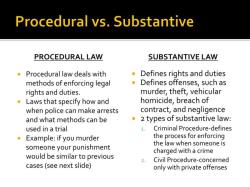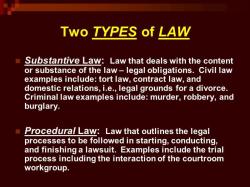What does federal indictment mean?
A federal indictment is a formal accusation that a person has committed a federal crime. It is issued by a grand jury after reviewing evidence presented by a prosecutor. The indictment outlines the charges against the individual, specifying the alleged criminal acts and the relevant laws that have been violated.
Key points about federal indictments:
Grand Jury Involvement: Federal indictments are typically the result of proceedings before a grand jury. Grand juries are groups of citizens convened to review evidence presented by prosecutors and determine whether there is enough evidence to bring criminal charges.
Serious Criminal Charges: Indictments are used for serious federal offenses, such as white-collar crimes, drug trafficking, organized crime, or other violations of federal law.
Due Process: The issuance of an indictment is part of the due process of law, ensuring that individuals accused of federal crimes have formal charges brought against them.
Legal Process Initiation: An indictment marks the beginning of the legal process against the accused. After indictment, the case proceeds through the criminal justice system, including arraignment, trial, and potential sentencing.
It's important to note that being indicted does not imply guilt. The accused is presumed innocent until proven guilty in a court of law. The indictment serves as the formal start of the legal proceedings and outlines the charges that the defendant will face.
Understanding the significance of a federal indictment
A federal indictment is a significant event in the American legal system, carrying weighty implications for the accused and beyond. Understanding its meaning requires delving into several key aspects:
What is an indictment?
- It's a formal accusation initiated by a federal grand jury, charging an individual with one or more federal crimes.
- The grand jury hears evidence presented by the prosecution but doesn't hold a trial or determine guilt. Their sole purpose is to decide whether there's enough evidence to proceed with a formal criminal case.
Why is it significant?
- Formal accusation: It marks the official start of a criminal case against the accused in federal court.
- Increased legal stakes: An indictment significantly escalates the legal ramifications. The accused now faces the full force of the federal justice system, including potential trial, conviction, and sentencing.
- Reputational impact: Being indicted can severely damage the accused's reputation, even if ultimately found innocent. The negative publicity and social stigma can have lasting consequences.
- Trigger for defense strategies: It prompts the defense team to prepare rigorously, gather evidence, and develop legal strategies to challenge the charges.
What happens after an indictment?
- The accused is arraigned, informed of the charges, and enters a plea (usually "not guilty").
- Pre-trial motions and discovery process unfold, where both sides gather evidence and exchange information.
- If the case goes to trial, the prosecution aims to prove guilt beyond a reasonable doubt, while the defense seeks to cast doubt on the evidence or argue for other legal arguments.
- The verdict can be guilty, not guilty, or a mistrial (if the jury can't reach a unanimous decision).
Beyond the individual:
- A federal indictment can have broader implications, depending on the nature of the alleged crimes and the accused's position.
- Public scrutiny and political ramifications can come into play, especially for high-profile individuals or cases involving national security or public safety.
- The indictment can spark public discourse and debates about law enforcement, justice, and societal issues related to the alleged crimes.
Important note:
- An indictment is not a determination of guilt. The accused is presumed innocent until proven guilty in a court of law.
Ultimately, understanding the significance of a federal indictment requires recognizing its gravity, potential consequences, and its broader impact on the legal system and public discourse.
I hope this explanation provides a clearer picture of what a federal indictment entails and its importance in the American legal system. Feel free to ask further questions if you have any!










